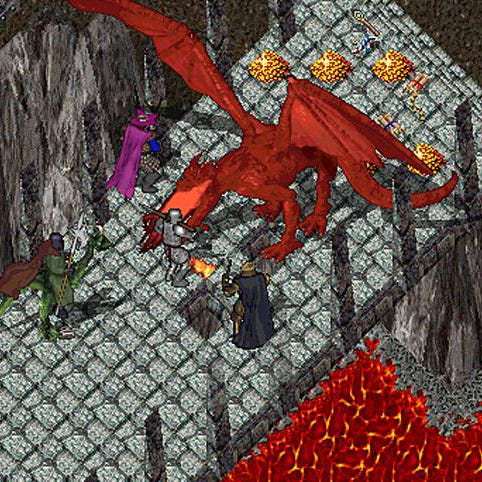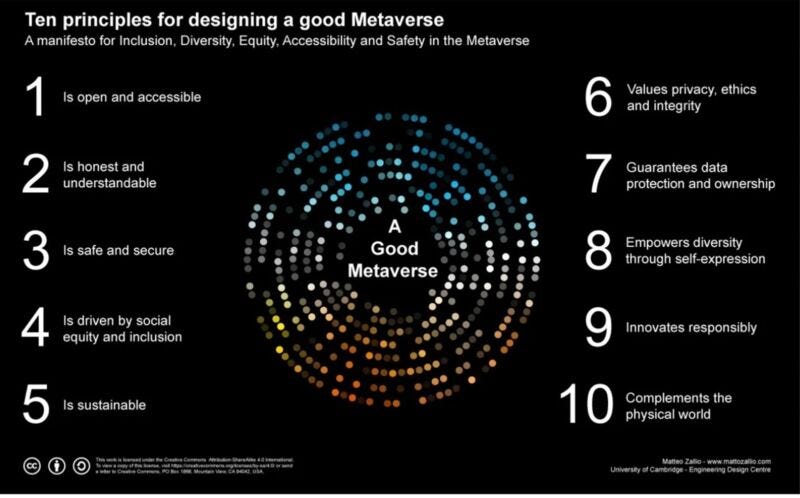Spatial Newsletter™ #048
This week while everybody else is focusing on ChatGPT-4 we focus on last year's darling, the metaverse (with a dash of Web3, AltspaceVR, and digital currency)!
Welcome to issue 48th issue of Spatial Newsletter™! Oh, yeah, and today is Spatial8’s 3rd birthday! Whoot, whoot! “What’s the metaverse without a little dystopia?” — Joh, the Debbie Downer of tech newsletter writers
Spatial8 is a Tech Toddler Today!
Pic courtesy of Teemu Ollilainen/Midjourney
“Oh sure, because doing everything yourself is the epitome of a good time, right? If you're tired of being a one-person army, let Spatial8 swoop in and save the day.
We understand that time is more valuable than gold, which is why we take our XR and metaverse concierge services seriously. Give yourself a break and let us handle the grunt work - after all, why pay top dollar for stress when you can have all of your business needs taken care of at a fraction of the cost?”
Huge thanks to our clients, our global network of partners, and our community XR Nation for making these past three years what they've been!
That is all.
So where are we, as a collective, coming from, where are we at, and where are we going with the metaverse project? I have no idea, but I’ll drip some paint on the canvas Pollock-style and you, dear Spatialist, can decipher it for yourself.
Welcome to the oldest part of the metaverse
If the metaverse is defined as a network of virtual worlds we can inhabit, the online medieval fantasy role-playing game Ultima Online is the grande dame of the metaverse, having already endured 25 years of in-world economic turmoil and political strife as well as market competition.
There are lessons to be learned from UO, just as there are from another metaverse OG, Second Life (see SN #012). Lessons like,
“It is impossible for designers to foresee all the ways users can break a system.”
Image courtesy of Broadsword/Electronic Arts
The caption reads: “Mortal peril
Slaying a dragon is a worthy challenge, but the most dangerous foes are other players.”
Here’s to the ‘cunning miscreants’ red teaming systems for gifts and giggles. Devs, come armed with ‘flexible improvisation’ and grit, or go home.
Fun read!
Who is Richard Bartle?
The “original metaverse expert” as Rafael Brown puts it. He co-created the first MUD (Multi User Dungeon), an ancestor of Ultima Online, in 1978. The Bartle taxonomy of player types (shown below) has been used by online game designers since 1996 to classify players in virtual worlds (though not without its criticisms).
<Am I a Killer/Explorer…? That’s like Indiana Jones…! Noice!>
And speaking of virtual worlds, in 2003 he wrote Designing Virtual Worlds,the book on designing virtual worlds (duh). This is what he thinks about Web3, more precisely, the problematic nature of using NFTs, play-to-earn, and blockchain for games.
The Metaverse Of Y2K
Kelly Vero, vampire writer, turns East, away from the “homogeneity of the western hemisphere, the west and post-WW2 attitudes to the future” (but, hopefully, also away from the sun) to share movies from the turn of the millennium that feel the most like how she perceives her “metaverse experience and existence” (it’s not Snow Crash-y or Fortnite-y for everyone, y’know).
Kelly’s always good for a good read. She’ll also teach you a thing or three (for example, I’ve never watched or even heard of any of those flicks).
Web3, the Metaverse, and the Lack of Useful Innovation
“Metaverse and Web3 are merely a pivot by Silicon Valley, an attempt to gain control of the technological narrative that is now spiraling downward, due to the huge start-up losses and the financial failure of the sharing economy and many new technologies.”
Can this be?
Jeffrey Funk and friends think so.
(Mind you, this was written before Silicon Valley Bank ate the big one.)
According to them,
“the newest wave of hot technologies [Metaverse, Web3, and blockchain] will do almost nothing to improve human welfare and productivity growth” compared to the innovations of the late nineteenth to the mid-twentieth centuries like “running water, electricity, mass production, the telephone, and the automobile”.
It’s hard to argue with that. While I could say it’s still too early to know that, and experiment anyway ‘cause who knows, I won’t.
Kicking XR and Blockchain in the proverbial ribs isn’t what the article is exclusively about though. For the authors, the hype of these ever-emerging technologies is symptomatic of how the “current ecology of technology, including venture capital and both corporate and university R&D, is failing society”. They go on to prescribe some things that we could do about it.
If you don’t like socio-economic context with your lambasting, skip this article.
It’s Not Too Early To Become Metaverse-Ready
“In 2023, having all that 3D content on hand gives companies the freedom to experiment with new metaverse concepts[…]in a way that’s faster, cheaper, more scalable, and more sustainable.” This is what I wasn’t trying to say earlier. What I did say before, though, is Spatial8 can help.
According to a study by the University of Cambridge, here are
(Thanks for sharing, Amna Usman Chaudhry.)
While new research suggests that privacy in the metaverse might be impossible, as the metaverse is an aspiration, we should also aspire to such principles and not let hype, frenzy, and crazy competition, like what we are currently witnessing with Generative AI and Machine Learning (both in the US and China), leave ethics in the lurch.
And while all that’s going on…
Play. Dead.
Heather Dodds has
“been thinking about how baptism is like 'play acting' your death. Religiously, it is supposed to symbolize dying (going under the water) and being reborn (coming up out of the water).
Last Friday, March 10, 2023, AltspaceVR shut down. For those that study the interrelationship between avatars and human beings (i.e. the Proteus Effect), being inside a platform while it shut down was like a form of play acting your death.
If I was asked what the mood was, it was like a funeral *before* a death.
Like something GOOD was about to be GONE.”
Deep.
Screenshot taken by Heather Dodds
Digital Money is a Big Deal
While Blockchain Gandalf makes me want to learn Solidity to make my own Orthoverse-type project or just get some ETH to get my own tract of land in his proto-metaverse, Andy Martin makes me want to believe. I want to believe that
“We need private digital money to protect democracy.”
As I said in SN #032, CBDCs [central bank digital currencies, i.e., programmable money controlled by the state] seem to be the use case of blockchain tech, and
“[c]ontrol of digital identity and money by the state looks exactly like George Orwells 1984 to me.”
Blast my paranoid nature! I can’t help but feel that the very existence of digital money is a slippery slope towards that kind of control. Someone assuage my fears. Ah, forget it, I won’t listen anyway.
AWE US 2023
Santa Clara, California is on the horizon! It will be from May 31 to June 2, 2023. Please follow the direct link to get your 20% AWE USA 2023 Tickets Here for 3-Day, 2-Day and 1-Day all access passes!
<Your Spatial AD Here>
Space for Rent!
See you when I see you, Spatialists!
Joh, desiring to bring true randomness to your computer






